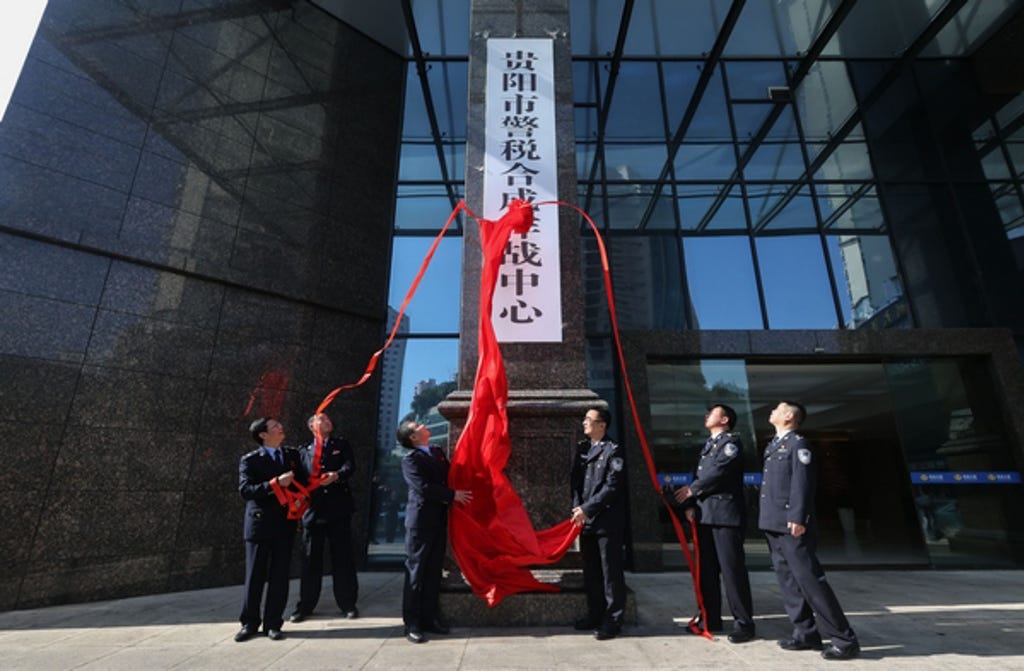Two crucial strings of events have occurred over the last few weeks in China. On the one side, there has been a growing incidence of tax collection efforts over “unpaid taxes” going way back. On the other hand, some corners of media and official outlets have openly predicted that a big fiscal reform is going to be rolled out in the upcoming 3rd Plenum.
These two things are tightly connected and may be the single most important thing in China right now. In today’s post, my ambition, in the true spirit of this newsletter, is to help you piece together all of these and make sense of them.
The predicament
It’s no secret that China’s local government finances, once mainly buttressed by land sales, have recently met some serious troubles as the real estate market changed gears. The pains of a public finance crisis are being felt, in the form of downgraded public services and delayed salary payments to public sector employees in many places.
Against this backdrop, there has been a growing number of stories about tougher tax enforcement action. For example, many local governments have recently set up the horribly named “Joint Tax-Police Combat Command”, giving tax authorities more policing teeth. Nationwide, “non-tax revenue”, which includes fines and penalties, has been on the rise, just when tax revenues have declined.
Many listed companies in China have announced they have been punished for tax evasion. Even Sinovac, China’s star vaccine maker (against whom the Pentagon ran a now infamous disinformation campaign according to Reuters) received a penalty from tax authorities for a total tax payment plus fines of more than RMB 20 million.
And these are just the listed companies. They have the legal obligation to make public disclosures about such penalties, but you can imagine under the water how many more other enterprises and individuals may have been targeted.
To be sure, the government is not inventing any new rules here. Very likely what happens is that there has been indeed some non-compliance on the part of companies, but tax bureaus looked sideways in the past. One of the arts in China’s administration is to allow some flexibility in law enforcement, so authorities can flex their muscle when and where they find it convenient. And now is the time.
Also, there is a clear difference between central and local government’s attitudes in this. The central government is very quick to dispel rumors suggesting there is a national campaign to investigate tax infringement taking place up to 30 years ago. I believe they are being honest here. It is almost certain there is not such an idiotic campaign, not from them. But who is to stop local governments from opening case files against potential suspects? After all, if there is tax evasion, the government has all the powers to investigate and penalize.
Leaving aside the question of right or wrong, if we only look at the practical side, this type of enforcement action will only make the economic situation worse by dampening business confidence. Tougher enforcement over a dwindling tax base will only make that tax base even smaller, as businesses are too weary to do any real business. This is the proverbial killing of the goose that lays the eggs.
Then there is also this perennial problem that Chinese people only seem to know how to produce, not how to consume. All policies at “stimulating” the economy only seem to stimulate the production side, leading Chinese manufacturers to produce without end, lending credence to the so-called “over-capacity” narrative.
Our current problem can thus be very simply summarized as a lack of aggregate demand. Households are not spending as desired, but producers keep producing, leading to higher trade barriers so foreign buyers may only buy less. At normal times, the government should step in to spend more in order to stimulate demand. But in our case, (local) governments themselves are facing a financial problem, and thus have no resources to spend. (And even when they have the money to spend, they tend to spend on production, not consumption.) It is already tough just to maintain an adequate level of spending, and to achieve that it already involves tougher law enforcement action, which can only inhibit demand even more. A vicious cycle is thus formed.
It is clear that a major systemic reform is required to break this cycle.
[For the rest of this article, I will comment on why the rumored fiscal reform program may potentially solve the problems above. This section will be behind the paywall for 5 days. If you are already a paying subscriber of Baiguan, you are entitled to a year’s complimentary access and please DM me for the access.
On the other hand, if you are not subscribing to Baiguan but subscribe to this newsletter as a “Robert’s Patron”, I can also invite you into Baiguan’s paying-member-only community.]




